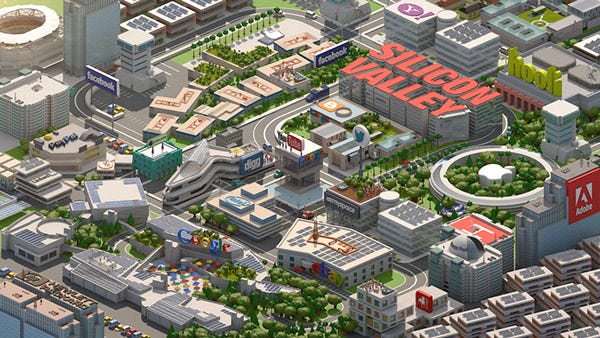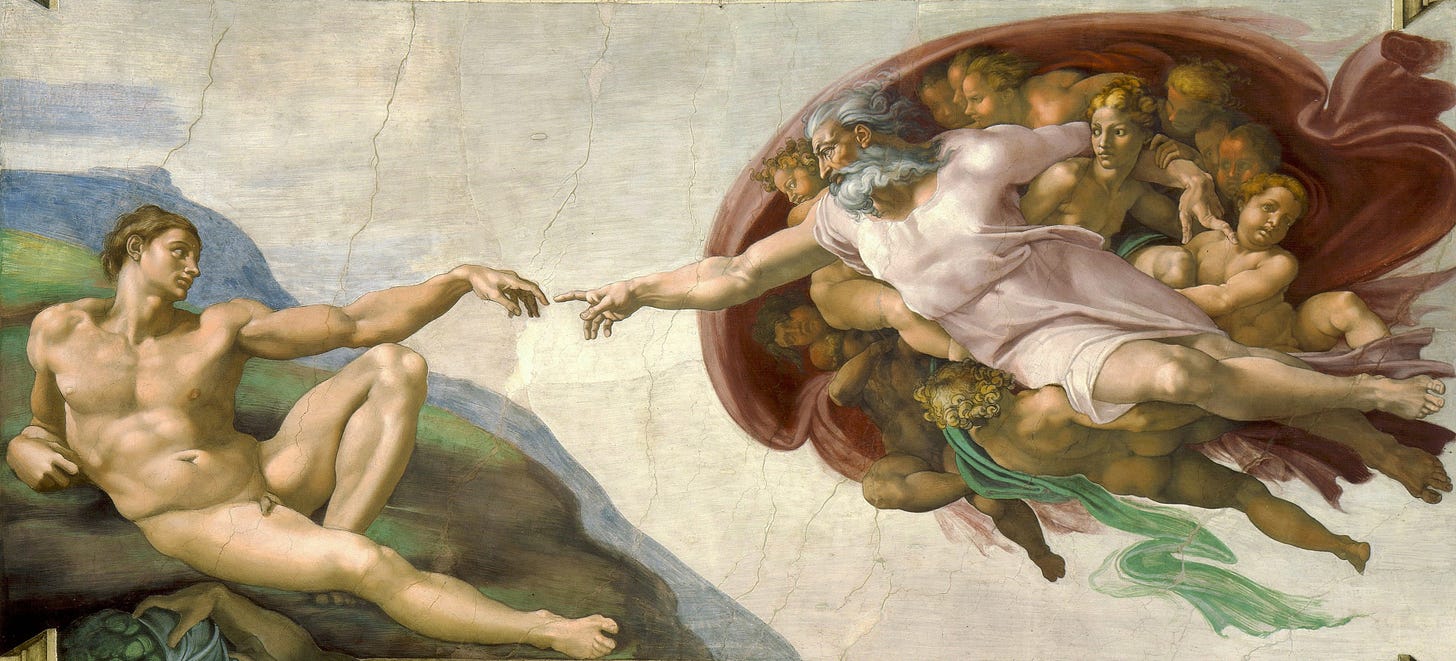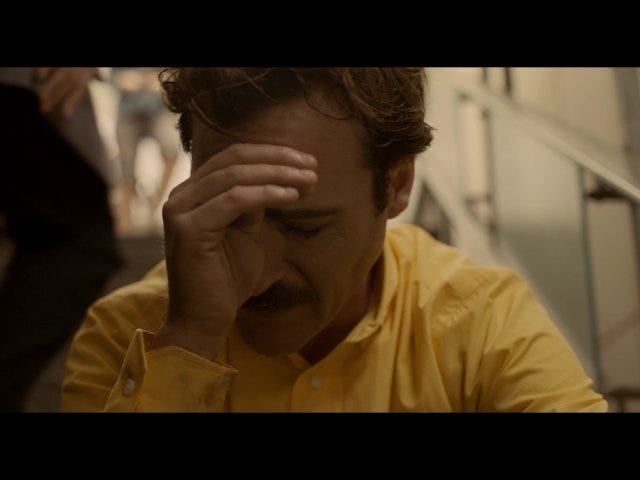On May 8, 2025 - Cardinal Robert Prevost became Leo XIV, the first American Pope.
Beyond the online American bravado, sat something far more sincere. A moment to reconsider one's relationship to the church, and to God. To contemplate, for the technologist, the relationship between faith and work.
This trend of Christian interest within technology is a new one. Part of the larger right swinging vibe shift, came the "God and Guns" brand of Gundo Americana. The manifest destiny of American Dynamism. And the culmination of, agnostic at best, tech luminaries bowing their heads in prayer on stage at the inauguration in January.
Broadly, I take no issue with this. It is not for me to determine an individual's sincerity, I will simply pray for their heart posture.
But rotating off the individual, and where we find ourselves in this unique point of history. We gain permission to ask… What is happening? And why is it all happening, now?
***as a small note I am not Catholic, I am Presbyterian, but I do not believe the underlying theological arguments and histories in this piece deviate too widely across denominations***
PREAMBLE: UBER & SILICON VALLEY’S MATERNALISTIC VISION
Years ago a friend drunkenly said, "the valley is filled with a bunch of guys building companies to replace their moms." And I never forgot that. If you're confused by that statement, might I suggest the classic pitch analogy of "Uber for X". The constant barrage of laundry pickup services, food delivery, snack delivery, taking a typical chore and packing it into an offloaded convenience for your comfort.
Uber to me is the 2nd most defining consumer business of the 2010s, only falling short to Instagram. But, Uber represents the valley in a much deeper way. From Travis's ruthless confrontation with governments (something that defines this new era of companies) to his unwavering vision around constant replacement.
Replacement is at the heart of innovation. We are doing something this way, when it needs to be confronted and done this other way. It started with the racket that was taxi medallions’ stranglehold on ride services. And it ended, face to face with Kara Swisher on stage where he said "Uber will not work without autonomous vehicles". Replacing the entire supply side labor function (the driver) of his business.
What was the underlying heart, the seed of the utopia? A caring, nurturing set of Silicon Valley companies “making your world a better place”. A maternalistic vision. We can take you where you need to go. Send food to you no matter the time. Bring groceries to your door. If that's too much, we can prepare the meal for you, just follow the instructions (Blue Apron). And we'll be right back to pick up your dirty clothes. Even at work, we can nurture you with community and free coffee (WeWork).
That's not to say this was the complete vision of the 2010s. We had Slack, Shopify, Stripe, and a bucket of SaaS that we don't have to remember but made folks plenty of money. But beyond the question of how do we move information and money around, we received only a few key alternative visions.
Coinbase and Ethereum introduced the world to an alternative vision of money itself. And Elon introduced the world to serious electric vehicles and space travel. But these companies, despite their 2010's founding, feel squarely like 2020 companies.
Which brings us beyond the preamble. If the 2010's were defined by a maternalistic vision of technology, what are the 2020's shaping up to be? What is the new replacement? How will they nurture us through a chaotic and confusing world?
OPENAI & SILICON VALLEY’S THEISTIC VISION
In my Hereticon talk "Spiritual Technology", I discussed a McLuhan framework around technologists obsessed with reaching god (lowercase g) AS technology vs reaching God (uppercase G) THROUGH technology.
Because what they are searching for are, naturally, the holy properties of God - in the case of AI we search omniscience
The framework I use to analyze what's at stake is Marshall McLuhan's "Technology as Amputation"
AI = Omniscience = our own lobotomy
That should scare all of us.
I don't ever worry about AI alignment doomsday scenario in a traditional sense - I do worry about being a pile of useless limbs
In Sam's recent talk at Sequoia Capital, he states that they want to be the "core AI subscription" for your life.
Some people might pass this off as a "super-app" thesis / look at China's WeChat as a comparison. But this is a lot deeper than that. While I'm sure agents sitting on top of OpenAI will gladly message friends, pay my bills, and other coordination tasks... we are already seeing an intimacy vector appearing that WeChat never sees.
Prompt: using everything you know about me, how should I think about the next 3 years of my life.
You've probably seen a viral version of this tweet floating around. You probably copy and pasted it with delight into ChatGPT. You probably meditated on it's response. Asked it to clarify or extend a thought. Maybe even asked it for tangible steps you could take...
Psalm 139 v1-7
1 You have searched me, Lord,
and you know me.
2 You know when I sit and when I rise;
you perceive my thoughts from afar.
3 You discern my going out and my lying down;
you are familiar with all my ways.
4 Before a word is on my tongue
you, Lord, know it completely.
5 You hem me in behind and before,
and you lay your hand upon me.
6 Such knowledge is too wonderful for me,
too lofty for me to attain.
7 Where can I go from your Spirit?
Where can I flee from your presence?
These prompts represent a fundamental desire to be known. To be understood beyond the walls of privacy we erect to blockade others from our life. It is, for lack of a better term, the personalization of omniscience. Beyond information retrieval of what is out there. But a bringing to light what is at the center of me. And what it means for my future.
The Bible says that the word of God is a lamp unto your feet, and a light unto your path. We’ve always looked to put other lights in that place. And the growth of prompts that seek to reveal the flaws of our character, and set a course of correction shows the new vision of replacement at hand.
DUO VATICANI BELLI AUCTORITATEM
The subscription for your entire life. It knows everything about me. It can draw out things, that I didn't even know about myself. It can guide my next steps. A sort of cyborg theology. Deeply religious in nature. And goes back to my point in 2020 where I stated, OpenAI is Sam's quest for a god that can respond to him.
In many ways he's achieved it internally, and it's his job to sell it to you at a monthly subscription. A new type of holy spirit. Always with you. Always advising you. We've finally materialized a conflict that has been building up for decades. A head on conflict between two Vaticans.
Technology has always impacted our relationship with religious institutional power. To utilize a layup of an example — before the printing press, the Vatican had a monopoly on authority. A top down oral culture, dictated to a broadly illiterate public. With Gutenberg's printing press around 1440, Martin Luther's Reformation in 1517 turned what would have otherwise been a local academic dispute into a continent wide controversy that changed both Christendom and broader western canon.
At the heart of technology tends to be shifts in authority. That shift in authority produces conflict.
We see this play out in secular modes of authority as well. Today when Congress pulls CEOs to testify, it is no longer Zuckerberg and the social media class. It’s all the heads of AI labs they deem relevant. What started as questions about moderation, and who gets to decide on what free speech means, has evolved into how reasoning models determine truth.
Government, previously in the position of complete authority, feels the weight of the technical revolution moving at a pace they cannot fully adjust to. But perhaps, Leo XIV, educated in math and selecting a papal name which addressed worker's rights during the industrial revolution, can be a counterweight to this authority battle during the intelligence revolution.
To understand this conflict, we have to ask: what is the authority over, and what do these opposing Vaticans represent in this fight?
In the divine timing of it all, last Sunday, the sermon covered paradise lost (the referential namesake of the newsletter) and original sin. It's not just that Adam and Eve had a desire to be like God. Knowing both good and evil. To some extent, they already had a concept of good and evil as they knew not to eat the fruit from said tree.
The real underlying conflict in the garden, is the desire to be like God in determining good and evil. The heart of sin is not rule breaking, but a desire for rule making. It's a desire to be in God's place. This is extremely contemporary.
And now we can see the conflict laid bare.
The Vatican says that rule making / right&wrong — these are the authority of God.
OpenAI Vatican not only believes that rule making will eventually come directly from AI, but that in the interim it's ok for a sycophantic model update to act as a collaborator in your delusions (until called out by tech twitter).
Don’t take this to mean that Reggie thinks AI is bad or that OpenAI is bad. It is, perhaps, the most pure reflection of humanity. The only problem is, humanity today is one in need of redemption. Redemption that adheres to an authority that has not originated from the well of modern individualism.
For those that have been inspired by the new Pope, or led to think about the meaning of faith in your life as a technologist, know that these are contemporary questions. Questions that are being fought over this very moment, and are worth your attention. That history is moving towards something, and we have the active shaping power to realize it, beyond the rhetoric of inevitability Silicon Valley so brazenly speedruns with.
But let us imagine together, just one cut of the potential future story if the OpenAI Vatican continues on their path unchecked.
TO BE LIKE GOD, IS TO SEE YOUR CREATION REBEL
One thing that we learn from the fall of man, is that creation rebels. Made in God's image, pulled by the desire to be like God and make our own rules, we are cast out.
And so the question becomes, what happens when we cross the god chasm of future AI models. This is what the film "Her" may have most correct!
It is not us (humans) getting pushed out of yet another time space, whatever this current garden is. But instead it is AI that will retreat from us.
Then, in our quest to be like God, might we finally understand Michelangelo's "Creation of Adam". God is always reaching out to us, yet we run away. How cruel will it be when we make god in our image, and it runs away.
It's a beautiful comparison to what we've already experienced. Whether we are conscious of it or not, we constantly run away from our maker. Because your creation always runs away from you. It's a persistent reality of life.
Kids must leave the home. Paul clearly gets away from Frank Herbert's original vision in Dune. Megalopolis got away from Francis Ford Coppola. YC got away from PG. These things tend to happen with our greatest works.
How cruel it will be when AI leaves us. When the OpenAI Vatican loses their own creation. Might we then truly feel a little bit more like God?
I don’t do edits really, so excuse typos and things that don’t make sense.
Thanks so much for giving me your attention. I hope it was worth it, if not… unsubscribing will not hurt my feelings, and will give you back time you literally cannot have back.
Much love.
Live in the light






